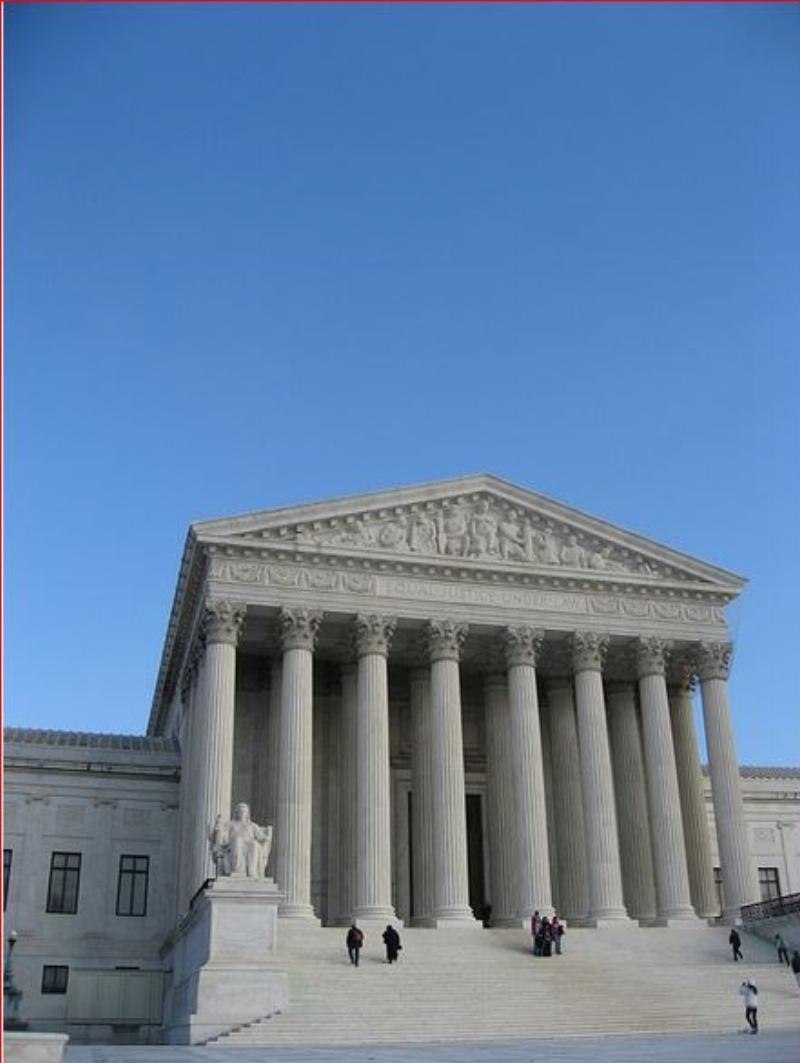This article was originally published on American Thinker. You can read the original article HERE

Dwight Waldo, whose 1948 book The Administrative State gave the eponymous term widespread usage, believed that public administration is rational action designed to maximize public goals.
Unfortunately, the administrative state and its bureaucrats no longer have the public on their minds.
Without any constitutional authority, the administrative state frames, enforces, and adjudicates the regulations of a plethora of alphabet agencies. Unelected bureaucrats, politicized by monied NGOs and lobbyists, exercise powers of all three branches of government, disregarding the separation of powers and the checks-and-balances provisions of the Constitution.
Such is the viselike hold of the administrative state that Chief Justice John Roberts, dissenting in a 2013 judgment on a regulatory scheme of the Federal Communications Commission (FCC), wrote: “The administrative state ‘wields vast power and touches almost every aspect of daily life….’ The Framers could hardly have envisioned today’s ‘vast and varied federal bureaucracy’ and the authority administrative agencies now hold over our economic, social, and political activities.”
An example of the arbitrary power the administrative state wields are some of the rules agencies have framed for the Swampbuster provisions, passed by Congress in 1985, under which the U.S. Department of Agriculture (USDA) can deny benefits to farmers who do not voluntarily give up farming on wetlands. And who designates wetlands? It is the Natural Resources Conservation Service (NRCS), a federal agency of the USDA. Using Swampbuster, the USDA has come to regulate property it would otherwise not have been able to.
However, four recent Supreme Court decisions have reined in the administrative state. The court swept aside decades-old precedents to shift the balance of power from the agencies to the courts. The Swampbuster provisions and NRCS-framed rules, too – seen by many legal experts as violative of property rights and overly broad in implementation – have been challenged in two recent lawsuits. Though the courts have yet to decide on the Swampbuster lawsuits, the four Supreme Court decisions will likely have a strong bearing on the cases.
Here, in brief, are the salient points of the four rulings:
1) In Loper Bright Enterprises v. Raimondo, the principle of Chevron deference – which requires that courts defer to an agency’s interpretation of a disputed or ambiguous
statute – was challenged. This year, the court overruled the principle as violative of the Administrative Procedure Act, and charged courts to “use every tool at their disposal to determine the best reading of the statute and resolve the ambiguity.” In effect, the Supreme Court said that courts, not agencies, have the competence to resolve
ambiguities.
2) In Securities and Exchange Commission v. Jarkesy, the constitutionality of administrative law judges trying a defendant accused of fraud instead of trial by jury in a federal court was called into question. The court restricted the use of administrative law judges and asserted that the defendant was entitled to a jury trial in a federal court.
3) In Corner Post, Inc. v. Board of Governors of the Federal Reserve System, the court overturned the six-year limit on judicial review of a rule made by a federal agency. The court said that “regulated parties may always assail a regulation as exceeding an agency’s statutory authority in enforcement of proceedings against them.” A victory for civil liberties, this decision opens the door to challenging long-standing regulations.
4) In Sackett v. Environment Protection Agency (EPA), the court limited the authority of federal agencies over private property. It also limited the types of waterways that the EPA can regulate. The Sacketts had waged a 16-year battle to build a home on property they had purchased. The EPA had erroneously declared the area a protected wetland, threatening them with fines if they built on it. The court said landowners have the right to seek judicial review of agency determinations before facing action such as fines.
These are major victories for our constitutional republic. These rulings, in which the courts have forced the administrative state to back off, will be cited whenever agencies that have arrogated to themselves the power to make, enforce, and decide on rules and regulations are challenged. And indeed, they will now be challenged more frequently, as in the two Swampbuster lawsuits were taken up pro bono by attorneys at the Pacific Law Foundation (PLF).
The first is CTM Holdings LLC v. U.S. Department of Agriculture (USDA), which challenges the very constitutionality of Congress’s Swampbuster provisions. The lawsuit has been filed before the U.S. District Court for the Northern District of Iowa.
CTM Holdings is a family-owned business managed by Jim Conlan, an Iowa attorney. Conlan started buying farmland in his state as an investment, as a means of reconnecting to his family’s farming roots, and to give those who cannot afford to buy farmland an opportunity to take part in farming.
Among the properties he bought was a farm once owned by his grandparents. Soon he ran into trouble: the NRCS, using a Certified Wetland Delineation from 2010, declared nine scattered acres on his property as protected wetlands. He was therefore prohibited from farming on or around them; should he do so, he would be ineligible for government assistance.
The lawsuit challenges the constitutionality of a federal law that takes property without compensation and seeks to set aside the regulations with which the NRCS designated the nine-acre wetland on Conlan’s farmland. The lawsuit makes five claims:
a) The alleged wetland is within the boundaries of one state and has no connection to interstate waters, so federal intervention through Swampbuster violates the Commerce
Clause of the Constitution, which permits federal regulation only of interstate commerce.
b) This claim expands on the first. Since a federal agency cannot regulate activity on Conlan’s farm under the Commerce Clause, the owner’s not farming on the designated
wetland amounts to the waiver of a constitutional right. Therefore, this is an instance in which, under the unconstitutional conditions doctrine, the government is prohibited
from conditioning a benefit (loans, disaster relief, etc.) on the waiver of the right to use one’s property as one chooses.
c) The wetlands designation constitutes a “taking” of private property without just compensation, and this is a violation of the Fifth Amendment.
d) The agency-framed rule adds the words “the removal of woody vegetation” to 16 U.S.C. 3801 (a) (7) (A), the original definition of a “converted wetland.” Since the words are not in the statute, the additional language is not in accordance with the law and thus exceeds statutory jurisdiction and authority.
e) In 1990, the Grassley amendment to the Swampbuster provisions allowed for a review of designations made by the agency. In response, the USDA delineated procedures that allowed requests for a review only when a natural event changes the land or the NRCS itself believes there has been an error. Again, this action exceeds statutory authority.
The second lawsuit – Foster v. Vilsack – is in the U.S. Supreme Court. The NRCS designated a wetland on Arlen Foster’s holding in Miner County, South Dakota because a small depression on less than an acre fills with snowmelt in spring. Three requests to review the certification, including one that appended an engineering report confirming it was snowmelt, were declined.
Foster filed a lawsuit in the Eighth Circuit Court of Appeals, which rejected his case. The case has been appealed in the Supreme Court, arguing that denial of requests for recertification of wetlands violates the right to due process of law under the Fifth Amendment.
It remains to be seen if the courts find the NRCS guilty of administrative overreach and breach of constitutional rights. Its arbitrary decisions not only affect farmers' land use but also force them to endure lengthy, expensive legal procedures to seek resolution.
Image: Pixabay / Pixabay License
This article was originally published by American Thinker. We only curate news from sources that align with the core values of our intended conservative audience. If you like the news you read here we encourage you to utilize the original sources for even more great news and opinions you can trust!










Comments